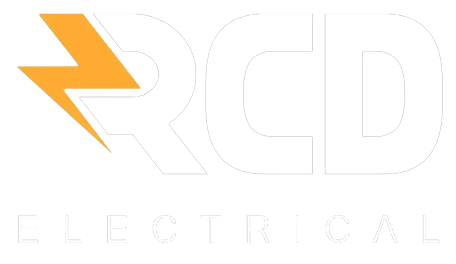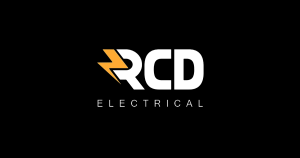Owning an electric vehicle (EV) is a great step toward saving money and helping the environment. However, relying on public charging stations can be stressful. Long queues, high costs, and limited availability can make charging inconvenient. This is why many EV owners are installing home charging stations.
A home charging station setup allows you to charge your car whenever you need, at a lower cost, and without the hassle of finding a public charger. Plus, with government incentives available, installing an EV charger at home has never been more affordable. Along with these, there are many more benefits of installing an EV charger at home, which you will read in this guide.
Want to make charging your EV car easier and cost-effective? RCD Electrical Ltd provides expert electric vehicle charging solutions across North London. Our team ensures a smooth installation process, using high-quality, future-proof chargers tailored to your needs. We handle everything—from wiring to certification—so you can charge with confidence.
Call 020 3488 2928 or email info@rcdelectrician.co.uk to book your installation with RCD Electrical Ltd!
Powering North London with expert EV charger installations. Trust RCD Electrical for safe, efficient, and future-ready electric vehicle charging solutions!
What Are EV Chargers?
EV chargers are devices that supply electric energy to recharge electric vehicles. They come in different power levels and configurations, allowing EV owners to charge their vehicles efficiently at home, work, or public locations.
Unlike standard electrical outlets, dedicated EV chargers are designed to provide faster, safer, and more reliable charging.
Types Of EV Chargers
Understanding the types of EV chargers is crucial when deciding on the best option for your home. Here’s a breakdown:
1. Level 1 Chargers
- Level 1 chargers use a standard 120V power outlet.
- They offer slow charging speed, typically 8-20 hours for a full charge.
- They are ideal for plug-in hybrid vehicles or emergency charging.
2. Level 2 Chargers
- It requires a 240V power connection, similar to large household appliances.
- They offer fast charging, most EVs can be fully charged in 4-8 hours.
- They are a preferred choice for residential EV chargers due to efficiency.
3. Level 3 Chargers (DC Fast Chargers)
- You can use direct current (DC) for rapid charging.
- They charge an EV to 80% in as little as 20-60 minutes.
- They are typically used in commercial settings rather than for home use.
Benefits Of Installing EV Chargers At Home
1. Cost Savings With Home EV Chargers
The first benefit of installing EV chargers at home is the potential for significant cost savings. Home charging can be up to five times cheaper than public chargers, especially when using off-peak electricity rates. Smart chargers allow users to schedule charging when energy prices are lowest, reducing costs.
Additionally, integrating a home solar panel system with an EV charger can drastically reduce electricity expenses by utilising renewable energy for charging.
2. EV Charging Convenience
A home charging station setup eliminates the hassle of searching for available public charging points. Instead of relying on external stations, you can conveniently charge your vehicle overnight at home, ensuring it is always ready for your daily commute. This eliminates waiting in queues at public charging stations, allowing you to conveniently plug in and charge your EV.
3. Increased Property Value
Installing an EV charger at home can significantly enhance the value of your property. As more people transition to electric cars, homes with electric vehicle charging solutions become increasingly attractive to buyers. Plus, properties with eco-friendly features, including EV chargers, can command higher prices and sell faster in competitive real estate markets.
4. Government Incentives For EV Chargers
Governments offer various financial incentives to encourage homeowners to install EV chargers. In the UK, the government incentives for EV chargers include grants which help offset installation costs. These incentives make home charging more affordable and accelerate the adoption of EV-friendly infrastructure.
5. Safety And Reliability
Home charging offers a safer and more reliable alternative to public charging stations. Public chargers can sometimes have faulty connections, suffer from wear and tear, or be subject to vandalism. A professionally installed home charger ensures safe and regulated power delivery, reducing the risk of electrical issues.
Additionally, homeowners can avoid the inconvenience of malfunctioning or occupied public charging points, ensuring that their EV is always ready for use.
6. Faster Charging
Home EV chargers provide significantly faster charging times compared to standard 3-pin plugs. Level 2 chargers, the most common type of EV charger for home use, can fully charge most EVs within 4 to 8 hours. With technological advancements, rapid and ultra-rapid home charging units are also becoming available, with some models capable of charging an EV to full capacity in under an hour.
7. Future-Proofing Homes
With the continuous rise in electric car adoption, homes with EV charging infrastructure are future-ready. Installing a home charger ensures compatibility with evolving EV technologies and models.
Additionally, as governments and businesses shift towards cleaner energy policies, having an EV charger at home supports long-term sustainability and contributes to a more energy-efficient future.
8. Sustainable Transportation And Green Energy Solutions
Home EV charging plays a vital role in promoting sustainable transportation. When paired with renewable energy sources such as solar panels or wind energy, an EV charger can help homeowners reduce their reliance on fossil fuels. This transition to green energy solutions significantly reduces carbon emissions, creating a cleaner and healthier environment.
9. Home Energy Management
Smart EV chargers help optimise household energy consumption by preventing power surges and balancing electricity loads. Many modern chargers come with built-in electricity storage options, which allow homeowners to manage their energy use more efficiently. Integrating an EV charger with a home’s energy management system enhances power efficiency and sustainability.
10. Multiple EV Charging Capabilities
Home charging solutions allow families with more than one electric vehicle to charge multiple EVs simultaneously. Dual-port chargers or multiple charging units ensure every vehicle is ready for use without scheduling conflicts. This eliminates reliance on public charging stations, offering a seamless and practical solution for households with multiple EVs.
CONTACT RCD ELECTRICAL
Future-Proof Your Homes By Installing Reliable EV Chargers With RCD Electrical
RCD Electricals are electrical experts you should contact if you’re looking for a trusted installer of electric vehicle charging solutions in North London.
Why Choose RCD Electrical?
- Certified and experienced: Our team consists of highly trained, certified electricians with years of experience setting up home charging stations in North London and surrounding areas.
- Tailored installations: We assess your home’s electrical capacity to recommend the most suitable types of EV chargers for your needs.
- High-quality equipment: We only use top-tier chargers to ensure long-term reliability and performance.
- Seamless installation process: Our electricians handle everything from initial consultation to full installation, ensuring a hassle-free experience.
- Ongoing support and maintenance: We provide continuous assistance, including troubleshooting and upgrades, to keep your charger running efficiently.
Don’t wait to enjoy the benefits of installing EV chargers at home. Contact us on 020 3488 2928 or email info@rcdelectrician.co.uk for expert advice and professional installation.

